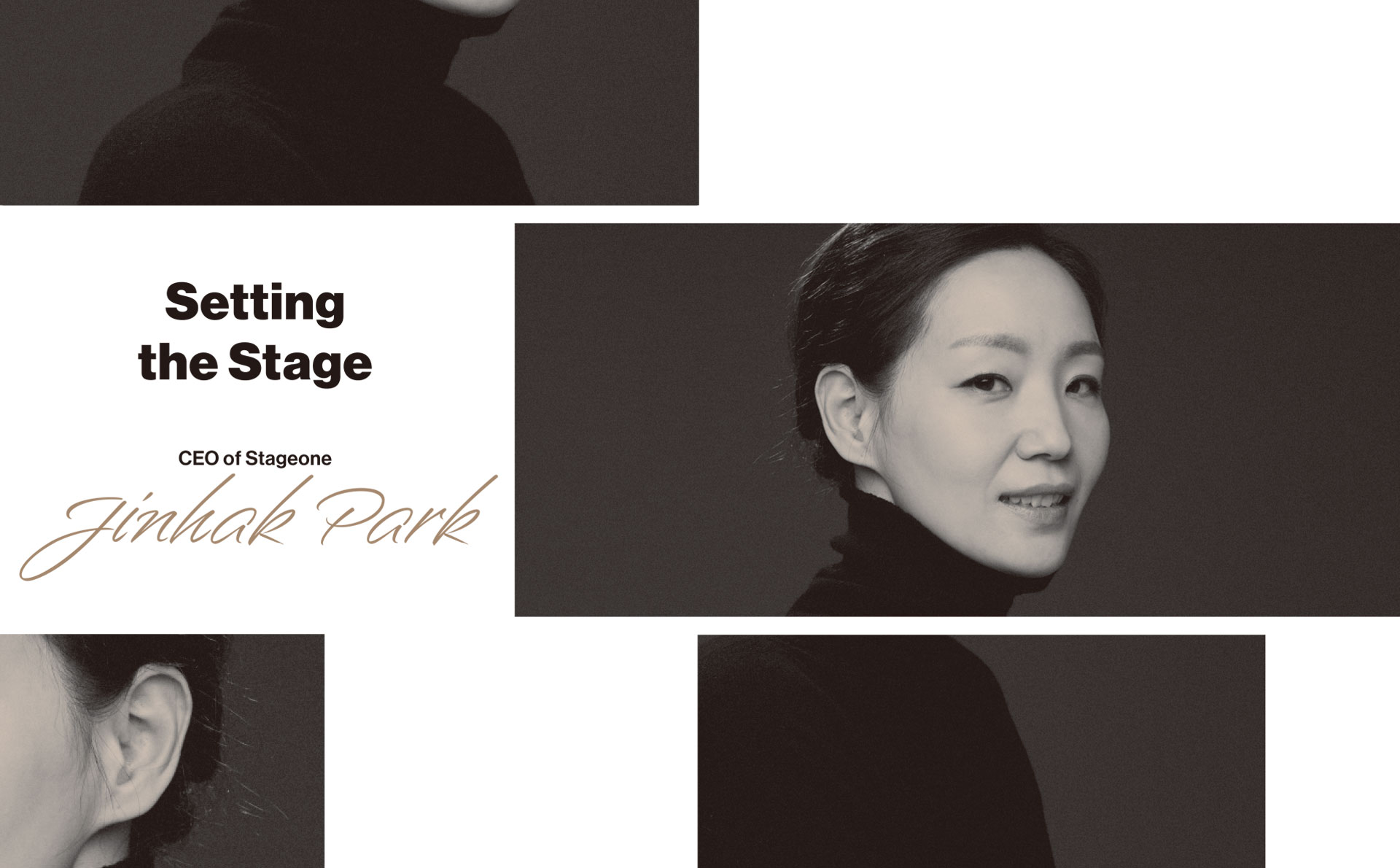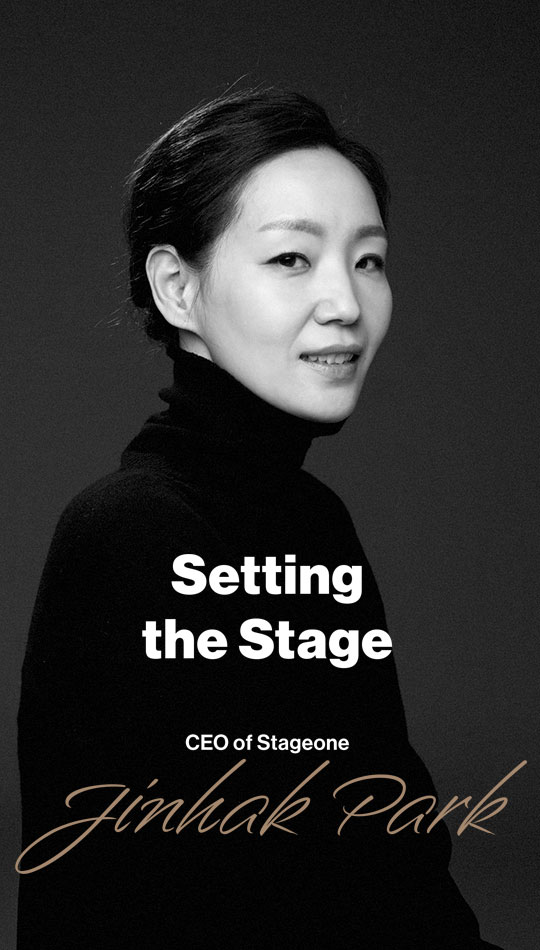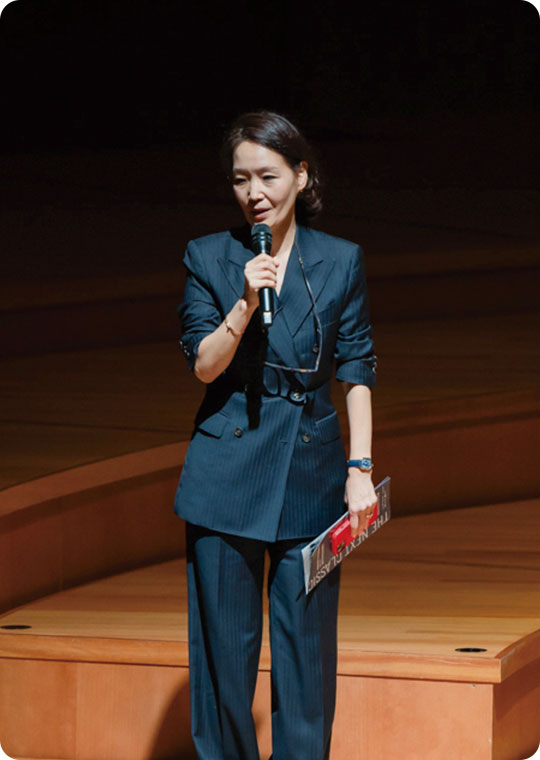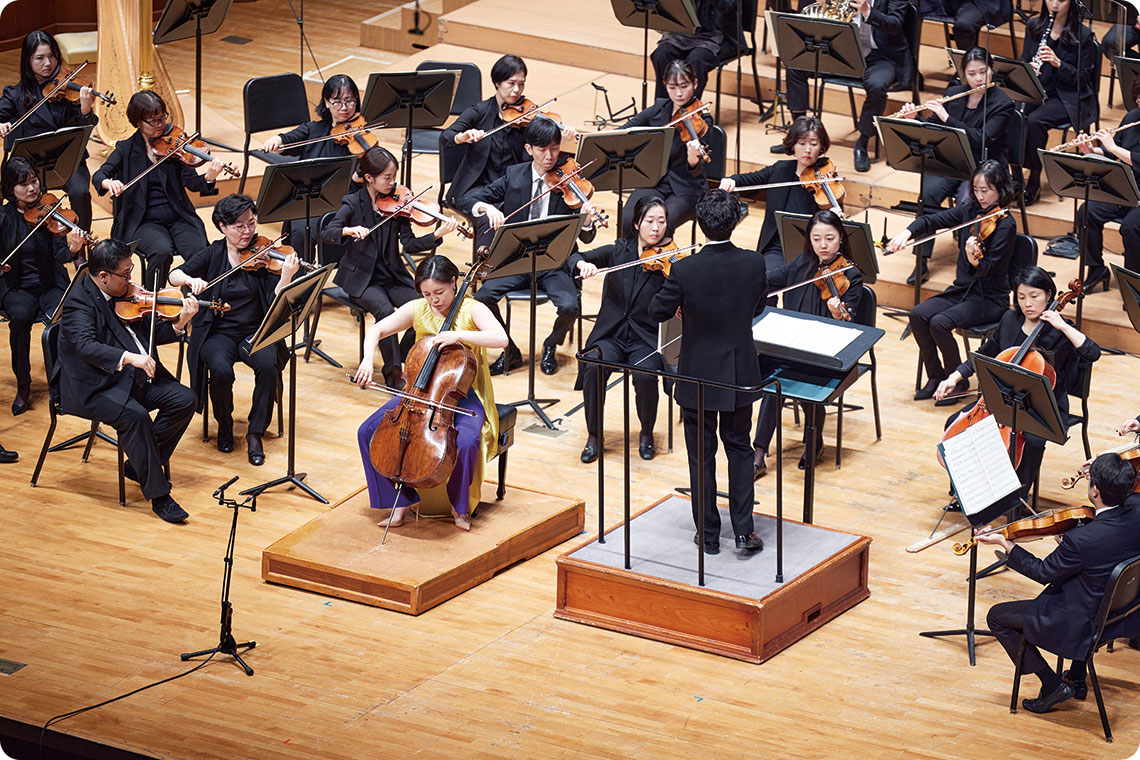Classical music has a reputation for having a high entry barrier in Korea. It might be due to the fact that performers emphasize tradition rather than providing relevant content that’s more accessible to the general public. Jinhak Park, the CEO of Stageone, has spent the past three decades helping people gain a better appreciation for classical music. Even today, she’s looking for ways to fill concert halls so that musicians can show off their talents.


Writer.
Sung Ji Yeon
Photos courtesy of.
Stageone
A New Vision for Accessibility
Jinhak Park, CEO of Stageone, first heard about the job of concert planner while reading a newspaper in 1994. Her enchantment with classical music, which was kindled by a Decca Records album featuring violinist Kyung Wha Chung, gave her the dream of becoming a concert planner. She soon got a job at Credia, a classical talent management agency, and after a few years of resume building, she left the company to set up Stageone. From the outset, her vision for the company was crystal-clear: “At the time, the Korean classical performance market revolved around artists from overseas, and the Korean record market was a big deal for those artists. Record companies had the power to decide who got to be a star. I didn’t like the idea of a market where ticket sales only served the interests of a handful of people. I wanted to secure steady funding from culture foundations and the government so that we could give the public interesting cultural offerings.”
Under Park’s vision, Stageone managed to become a company that could excel in a range of areas. The company does concert planning and staging, record production and talent management. That sets it apart from other companies in the field, which tend to focus either on concerts or management. Stageone honed its talents by bringing foreign artists to Korea through the Korea Foundation’s cultural and arts programs and by developing suitable programs for young artists receiving support from the Lotte Cultural Foundation’s One Korea Youth Orchestra and Hyundai Motor Chung Mong-Koo Foundation’s OnDream Young Arts program.
 Park officiates the performance called
Park officiates the performance called ‘The Next Classic’ by the Byucksan Foundation.
 Stageone’s Cellist Minji Kim collaborates with the Jinju Symphony Orchestra.
Stageone’s Cellist Minji Kim collaborates with the Jinju Symphony Orchestra.Staging Concerts for Everyone
The expertise Stageone has gained through its work with these organizations helps it create classical programs that are accessible and attractive to ordinary audience. “People tend to think of classical music as being difficult, but it’s just music, right? We’ve done a lot to help people see past that stereotype and enjoy classical music on its own terms,” Park said. Her company organizes “lifestyle orchestras” and other programs that let people experience classical music without buying tickets. It has also developed online content such as “Mercury Star Power Show,” a YouTube talk show where musicians are interviewed by a host who is new to classical music, in collaboration with Universal Music Korea, Korea’s biggest classical record company. Stageone also has a YouTube channel of its own called “Yumotsyo,” a Korean abbreviation for a phrase meaning “nobody famous gets to be on this show.” The channel gives newcomers to the genre useful tips like track recommendations and Korean artist profiles.
Park’s efforts are aimed at benefiting not only the listening public but also classical artists themselves. Her work with culture foundations has given her insight into the plight of Korea’s young artists. “While Korean classical artists are rated very highly, classical music doesn’t sell as many tickets as musicals or pop music, and the classical scene generally relies on star power. That means that even outstanding artists don’t get many opportunities to perform, and they need to perform a lot if the classical scene is to grow. So I set up the Young Artists Forum & Festival with the goal of supporting young artists and bringing together industry colleagues to discuss other ways to help out.”
Parks and her colleagues drew upon their personal funds to set up a support program for identifying and promoting up-and-coming Korean artists through the Young Artists Forum & Festival. She selected artists to participate in the program, organized classes for them, and planned their concerts. Since 2019, there have been separate festivals for pianists (“The Passionate Piano”), string musicians (“The Secret of Strings”), wind musicians (“A Rushing Wind”) and vocalists (“An Ode to Classical Vocalists”). This program is particularly significant because all of the participating musicians are currently active in their field. “The Passionate Piano” will soon be returning for a second edition.
 Jinhak Park co-founded the Young Artists Forum & Festival with Bomi Yun from Bucheon Art Center, Hyunjin Park from Mastmedia, and Dongeun Lee from Donice.
Jinhak Park co-founded the Young Artists Forum & Festival with Bomi Yun from Bucheon Art Center, Hyunjin Park from Mastmedia, and Dongeun Lee from Donice.
Magical Moments Onstage
Since these programs don’t bring in much revenue, it’s been necessary for Park to spend out of pocket on them. But she’s put them on anyway because of the values she holds. “After spending 30-plus years in this field, the most important thing isn’t the money, but the satisfaction I get. I want Stageone to have a meaningful impact on the field of music, no matter how small our projects may be. I also want the musicians who work with us to feel that change is in the wind. Everyone has moments on stage when they feel a powerful unity. Musicians, staff, composers of the past and audience members in the present only get to come together for a fleeting moment. I think that the very transience of a concert is what makes it so meaningful. Needless to say, it’s satisfying to create meaningful moments like that.”
Sure enough, the year 2024 is shaping up to be a satisfying one for Park. She’s planning to put on another installment of the Young Artists Forum & Festival, a recital for Stageone artist Soo Hyun Kim, and a chamber music festival in August featuring string musicians from the U.S. “What I want to do is organize concerts for more people, create growth opportunities for good artists, and provide a positive work environment for the staff members who make that possible. So I’ll keep my nose to the grindstone, just as I’ve been doing for the past 30 years,” she said.
The devotion to classical music that was evident in my interview with Park is sure to stick with me, just like the memory of a thrilling concert. I hope she’ll keep making meaningful moments in the Korean classical music industry for many years to come.
